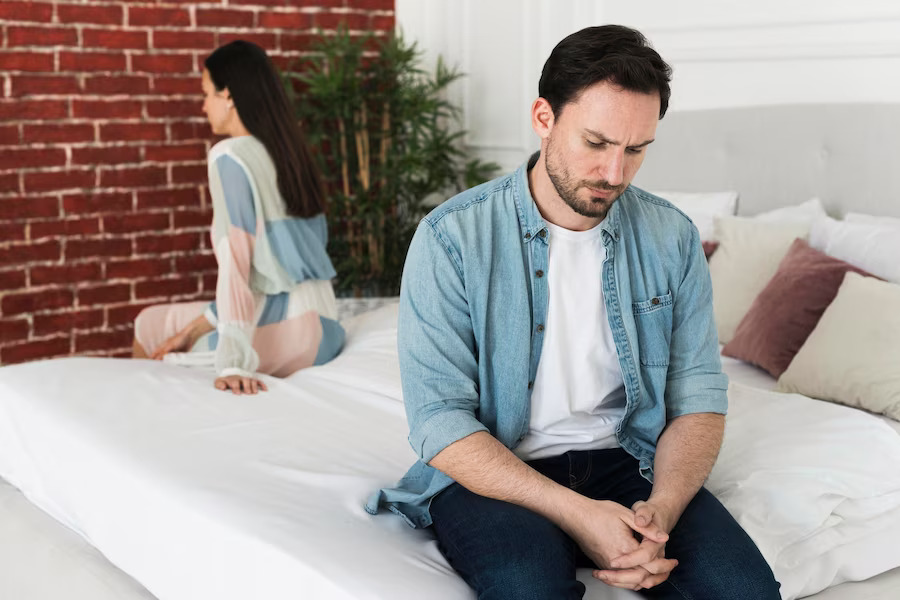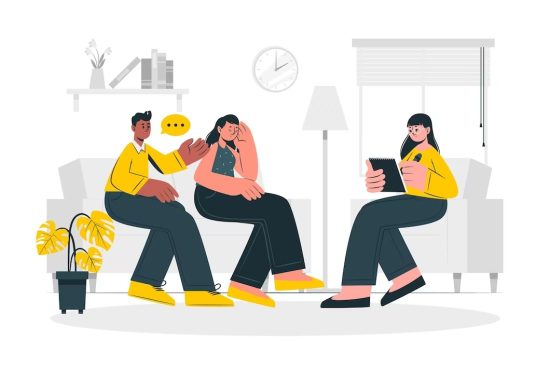
Sexual difficulties are about as common as eating or sleeping disorders. Research shows that sexual dysfunction affects about 43% of women and about 31% of men in the United States. Statistics for insomnia and eating disorders in the United States are not far behind. 30% of adults report at least short term issues with insomnia. Up to 30 million people suffer from an eating disorder.
However, if you try searching for statistics of sexual difficulties in India, you will not see many search results. A search for statistics of eating disorders, however, will yield plenty of results! There is not much data on sexual difficulties in India. This shows that these difficulties are not spoken about enough. Instead, they are probably brushed under the carpet.
Sexual Difficulties Are More Common Than You think

If you experience sexual difficulty, chances are that you have felt isolated. You have probably felt that only you go through it, while people around you are having no issues. As a therapist, I can assure you that this isn’t true.
If I were to think of the top 5 reasons why people approach therapists, issues pertaining to sexuality and intimacy would definitely feature as one. Issues such as difficulty getting intimate, intimacy not being pleasurable, couples not having had intercourse for years together, difficulty feeling aroused, sexual incompatibility etc. are fairly common. If you experience any of these, you are certainly not alone.
Why, Are Then, Sexual Difficulties Not Spoken About?
Sex and sexuality are typically seen as basic instincts that should “naturally” be in place. Moreover, the world around us seems to support this notion. Be it television series, movies, videos or books, sex is almost always portrayed as easy and natural. Even the stories we hear from those around us are about the awesome experiences they have had. There seems to be no space, no opportunity, for sexual difficulties to be discussed.
Hence, having sexual difficulties can cause a lot of shame and self doubt. People who experience such difficulties can feel deeply unattractive, less masculine or feminine, less deserving of love and attention. They can harbor acute fears about being in romantic relationships, though they yearn for one. Sexual difficulties can make one feel that something fundamental is wrong with them. They then look for ways and means to fix the problem, trying one thing after another. However, one important factor about sexuality is often missed out, that is, sex is as psychological as it is physical.
Sex Is As Psychological As It Is Physical
Sex is about intimacy. It is about what happens to you when you reveal yourself, as you are, to another. It’s quite a handful, since it involves being vulnerable, open, powerful, free and more together.
Sex begins with an instinct, but is influenced by a whole bunch of factors when it has to express itself.
In therapy work with clients, we look deeper into what is preventing intimacy and we often discover that the reasons are more psychological than physical. Some of the myriad factors that can cause sexual difficulties are:
- Chronic childhood experiences that shape personality a certain way
- Chronic anxiety, brooding, constant stress and worry
- Self image issues – a low self image can have a direct impact on sexual expression.
- Body image issues – since sex and intimacy are bodily expressions, body image issues can also directly influence one’s confidence and freedom with sexuality.
- Openness about Intimacy in the family – We grow up watching how our parents treat intimacy for themselves, in their own lives. Sometimes we are also expressly taught how to view things like intimacy. Both things can impact how we relate to our own sexuality.
Other factors are suppressed anger, difficulty expressing power or love, fear of losing people or relationships, insecurity, etc. The list is hard to cover. However this is indication enough that sexuality is psychological rather than simply physical.

Having Trouble Talking About Your Sexual Difficulties?
Counseling can be a great tool for you to open up about and overcome your sexual difficulties and lead a happy, stress-free life with your partner.
We are here for you.
Reducing The Shame Around Sexual Difficulties
It is important that we create an environment that feels safe enough for sexual difficulties to be discussed. Let each one of us play our part in reducing the air of secrecy and shame around it by understanding it with more perspective.
Let’s be careful before we playfully belittle someone who has sexual difficulties; trying to understand them better before we arrive at conclusions.
If you have sexual difficulties, it is important to know that you are really not alone. Perhaps these issues mean that some part of you needs healing and expression. It is also important to remember that help is available. There are relationship and sex therapists who dedicatedly work with the psychological factors that underlie sexual difficulties. Rather than struggling with the shame and feeling alone, it is often far more beneficial to reach out to a professional.
For sexuality is an expression of the self, the seed is an instinct, the manifestation is like a tree, affected by the sun, winds and soil.
About the Author
This article was written by Malini Krishnan, Counselor at Inner Space. This post was consulted & approved by professional therapists practicing online therapy and counseling.
Ask a Therapist
If you are interested to know more about sexual difficulties and other mental health topics, ‘Ask A Therapist’ is a platform for you to ask your questions related to Mental Health, Mindfulness & Emotional Well-Being to our team of qualified Therapists.




